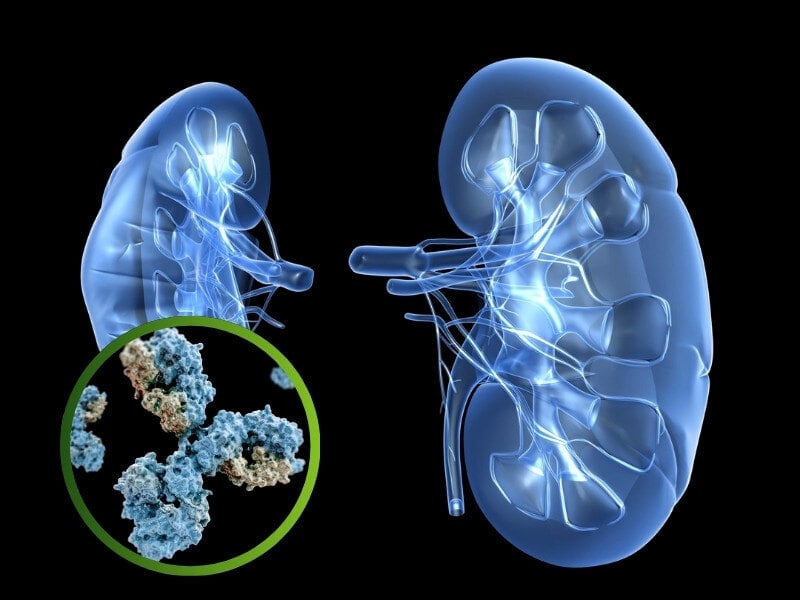Targeting oxMIF To Develop Novel Biotherapeutics

Ahead of Oxford Global’s upcoming Immuno 2023 Congress, we met with Michael Thiele, Chief Scientific Officer, OncoOne Research & Development GmbH to discuss their work developing novel therapeutics solid tumours and autoimmune conditions
Can you tell us a little about your current work?
I am Co-Founder and Chief Scientific Officer of OncoOne, a biotech developing novel biotherapeutics for patients with solid tumours and autoimmune diseases by targeting the oxidized macrophage migration inhibitory factor (oxMIF). Together with my co-founders, we identified oxMIF to be a disease-related and druggable isoform of the macrophage migration inhibitory factor (MIF). OxMIF is an important driver of innate and adaptive immunity and tumorigenesis, uniquely expressed in solid tumours and inflamed tissues. We are currently advancing two bioengineered monoclonal antibodies, ON203 in solid tumours and ON104 in autoimmune diseases, towards clinical evaluation. We believe that by applying our deep understanding of the target, OncoOne has the potential to overcome the limitations of targeting MIF and provide a range of treatment options for indications with a high unmet therapeutic need.
- Improving Patient Response Through Effective Biomarker Development
- Novel TNF Superfamily Antagonists for Cancer & Autoimmunity
- Multi-Specific Protein Modalities For Solid Tumours
As you work with both cancer and autoimmune immunotherapy, do you think understanding both disease areas aids your research in any way?
I think it is easier to win a war if you understand not only your weapons but also those of your opponent. Ultimately, we are talking about microenvironment-dependent mechanisms that must be harnessed to either start a fire in cancer immunotherapies or quench it in inflammatory diseases. We have learned a lot in the last decades and understand more and more how tumours trick the immune system by generating an immunosuppressive TME and taking over checkpoint control. Likewise, we have gained many new insights on which factors contribute to the development/maintenance of autoimmune disorders. The better we understand both fields of research, the better we can plan rational combination therapies in Immunooncology.
Why have you chosen oxMIF as a therapeutic target over other candidates?
I would rather say that oxMIF chose me. There has always been a non-explainable gap regarding the huge, literature-based evidence of MIF in the development of autoimmune disorders against the clear, biological effects of MIF inhibitors/antibodies or recombinant MIF. In my past professional experience, I was fortunate to work with approximately 150 diverse anti-MIF antibodies which were derived from a phage display panel. From these antibodies, less than 10 were effective in in vitro/in vivo models of inflammation – and they had one thing in common: they were specific for a previously unrecognized isoform which drives biological effects published for MIF and which we could detect in diseased tissue: oxMIF.
Do you see promise in bispecific antibodies as a mainstream treatment, in spite of relatively few approvals compared to the amount of these in development?
I would say yes, especially in oncology. If you look at bispecific T cell engagers for instance, a major caveat of the 1st generation are narrow therapeutic windows. However, improvements have been made by refining epitope specificities and affinities towards CD3 to optimize T cell responses. Generally, when compared to combination therapy, the modulation of two biological targets by a well-designed bispecific can be advantageous in terms of synergy, pharmacokinetics, lower probability of drug interactions and potential side effects. In the meantime, a variety of bispecifics are in development for the treatment of chronic inflammatory diseases – but, there are still challenges to competing with the dual targeting approaches of approved monospecific mAbs later on.
Do you think a greater synergy between immuno-oncology and immunology researchers would benefit the current immunotherapy landscape?
While I think that a great deal of synergy already exists, there is always room to expand those collaborations. Conferences like Immuno are important for enabling exchanges about innovation and fostering new ideas/synergies.
To see the latest insights into novel modalities for cancer immunotherapy, consider joining Oxford Global’s upcoming Immuno 2023. We specialise in capturing the latest developments in the field of immuno-oncology as and when they happen, so stay up to date by tracking all these insights on our Immuno Content Portal.
Speaker Biographies
Dr. Thiele obtained his PhD in Biology at the Rheinisch-Westfälische Technische Hochschule (RWTH) Aachen, Germany and started his career at Baxter BioScience. During his career at Baxter, Baxalta and Shire, Michael led a network of innovation with key opinion leaders, academic institutions and CROs, which led to the discovery of new therapeutic targets. Before co-founding OncoOne, Michael was heading the Department of Cell Biology in Oncology Research, R&D, at Shire.







